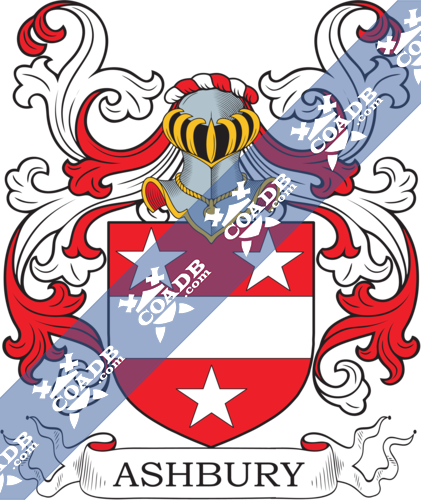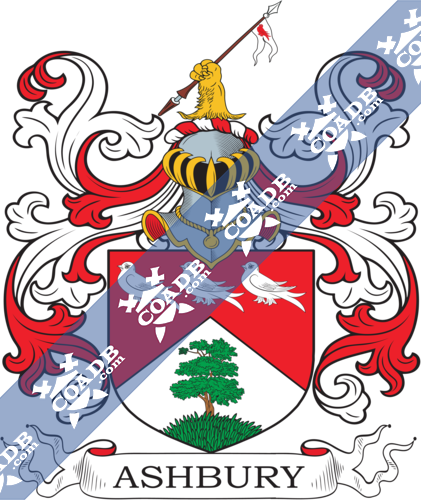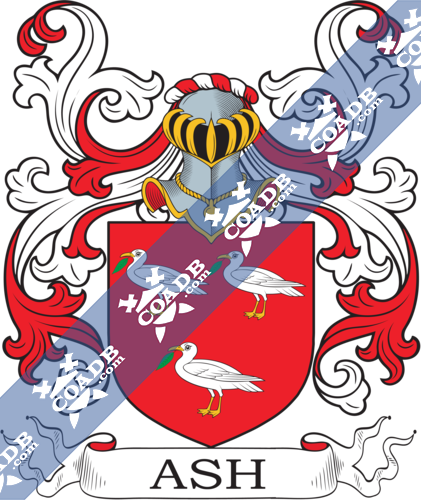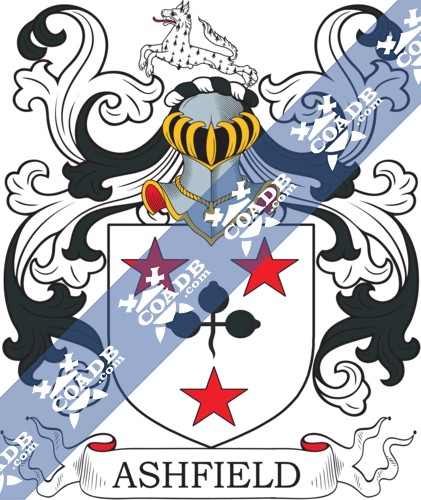Ashbury Family Crest, Coat of Arms and Name History

Ashbury Coat of Arms Gallery
Don’t know which Coat of Arms is yours?
We can do a genealogical research. Find out the exact history of your family!
Learn MoreAshbury Origin:
England
Origins of Ashbury:
The founders of the Ashbury surname exist in the old Anglo-Saxon culture. The name acquires from when they resided in Ashbourne, Derbyshire; in Ashburnham, Sussex; or in Ashburton, Devon. Before English spelling regulated a few hundred years ago, spelling variations of names were a common experience. Elements of Latin, French and other languages became organized into English through the Middle Ages, and name spellings changed even among the educated. The variations of the surname Ashbury contain as Ashburnham, Asbury, Astbury, Ashburner, Ashbourn, Ashburn, Ashburnam, Ashburham, Ashbourne and much more.
Variations:
More common variations are: Ashburey, Ashburry, Asheburry, Ashbry, Aeschbury, Ashbery, Ashbr, Ashberry, Ashbary, Ashabur.
England:
The surname Ashbury first appeared in Derbyshire, at Ashbourne, a market town in the Derbyshire Dales now famous for its historical annual Shrovetide football match. The first record appeared in the Domesday Book where it noted as Esseburne, having acquired from the Old English aesc and burna, which means “stream where the ash-trees grow.” “There can be little no doubt, however, that the Ashburnhams have been seated at Ashburnham from the period of Henry II, and perhaps from a much earlier period, and declined from Bertram, Constable of Dover in the period or William the Invader.” “The estate [of Ashburnham in Sussex], with the difference only of a few years, has been from a time anterior to the Invasion in the continued ownership of the noble family of Ashburnham, whose mansion-house here is beautifully located, and covered by a fine park. The parish, located behind Ashburnham House, is a neat cruciform edifice in the decorated English style, with a tower like the south transept contains a gallery for the family, and in the north are handsome monuments to William and John Ashburnham and their wives.” The origin of surnames during this period became a necessity with the introduction of personal taxation. It came to be known as Poll Tax in England.
Ireland:
Many of the people with surname Ashbury had moved to Ireland during the 17th century.
United States of America:
Individuals with the surname Ashbury landed in the United States in three different centuries respectively in the 17th, and 18th. Some of the people with the name Ashbury who arrived in the United States in the 17th century included Robert Ashbury, who came to Virginia in 1637. Francis Ashbury, who landed in Maryland in 1665. Thomas Ashbury, who arrived in Maryland in 1676.
The following century saw more Ashbury surnames arrive. Some of the people with the surname Ashbury who arrived in the United States in the 19th century included John Ashbury, who landed in Virginia in 1705.
Here is the population distribution of the last name Ashbury: South Africa 201; United States 171; England 97; Canada 91; Australia 9; New Zealand 7; Norway 1; Zimbabwe 1; Rusia 1; Malawi 1.
Notable People:
James Lloyd Ashbury (1834 –September 1895) was a British yachtsman and Party leader. The son of John Ashbury, founder of the Ashbury Railway Carriage and Iron Company Ltd of Manchester, James qualified as an engineer and worked the family company. When his father passed away in 1866, he received the business and a considerable fortune. Influenced by the polluted atmosphere of Manchester and Ashbury he shifted to the coast, where he took up sailing. As he tried to advance in society, he took up competitive yachting.
Joseph Ashbury (1638–1720), was an English actor and theater manager. He was born in London in 1638, into a famous family, was educated at Eton College, and entered the army. Quartered in Ireland, when the guidance of Richard Cromwell came to an end, he was one of the officers who replaced under the regime of the revived Rump Parliament, and he was also one of those who, in the royalist interest, seized Dublin Castle in December 1659.
Blazons & Genealogy Notes
1) (Worcester). Gu. a fesse betw. three mullets ar.
2) Motto—Aequitate ac diligentia. Per. chev. gu. and ar. in chief three martlets of the last and in base on a mound vert an ash tree ppr. fructed of the first. Crest—A lion’s gamb. erased or, holding a spear pendant therefrom a flag ar. thereon a martlet gu.








